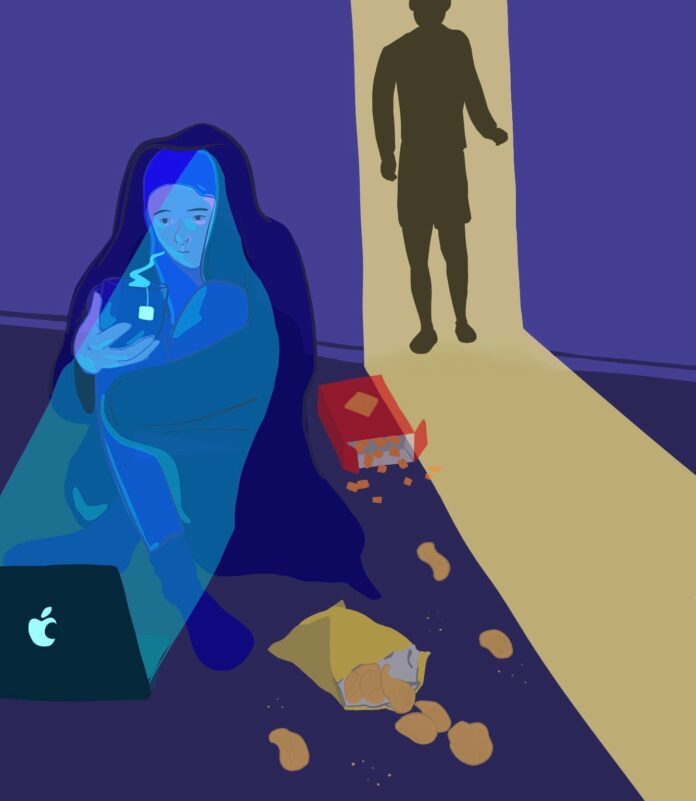By The Editorial Board
The term “depression room” has been floating around social media. However, experts were ahead of the curve on this trend, linking a messy home with mental health decline. Influencers, and perhaps people you know personally, use this to describe a connection between their physical and mental spaces.
Yes, there is a difference between a professional diagnosis and self-evaluating your mental health. Either way, it’s important to try to know yourself and ask for help when needed.
The topic of depression rooms and mental health seems all the more relevant because the post-spring break slump and aftermath of unpacking is real.
Clutter that accumulates after a stressful couple of weeks — a pile of questionably clean laundry, a chair that seems to attract clothing in excess or a nightstand cups and bowls end up on — could be an indicator of your well-being. An article from the Journal of Environmental Psychology says there is a significant connection between a person and their home, and a disorganized space can be a sign of poor mental health and can have further negative impacts on psychological well-being.
Maybe your room doesn’t get messy and there are other indicators in your daily life that point to a decline in mental health. Not everyone has a literal “depression room,” but most people have warning signs. Take note of what happens in your life when personal things, school or work get overwhelming.
Awareness is a vital aspect because mental health “red flags” can tell you when it’s time to reach out for help. While asking for support or taking care of yourself when you’re in a rut can be incredibly difficult, there are small adjustments and strategies that can go a long way.
To start, create a threshold for when you reach out to someone. For example, if you’ve been feeling down for four days — or whatever your personal warning range of bad days is — reach out to a friend for support so they’re aware and can check on you.
There are resources on campus and people in your personal life who are here for you and are more than willing to help. Have designated people you trust to notify when things are getting hard. It can get easier to self-isolate with the more time that goes by. It’s never too late to reach out for support, however, it gets harder to verbalize struggles the longer they go on. Touch base with your friends or family when you need it.
Knowing what to ask for from a support system or identifying an activity that helps can be a big step to helping yourself. Have habits to practice when you notice certain mood indicators. These could be drinking tea, going for a walk, watching a comfort movie, listening to worship music and the list goes on. Maybe you need a friend to listen to you vent, watch a show with or help you clean.
Find what works for you.
Mental health is just as important as physical health. Getting ahead of a rough patch and knowing how to work on getting better is essential to taking care of yourself.






